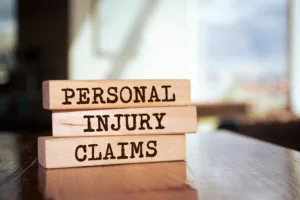Accidents have the power to uproot our lives, often leaving physical, emotional, and financial turmoil in their wake. From slip and falls in grocery stores or car collisions on busy highways to medical procedures gone wrong caused by negligence of others, personal injuries incurred from such acts of harm have far-reaching repercussions that require seeking compensation through personal injury claims. These claims can help gain stability again and recover from damages inflicted upon us. But successfully navigating them requires insight from professionals familiar with all nuances of legal proceedings – which requires expertise as well.
Accident Medical Group’s team of experts can be invaluable. Their extensive experience handling personal injury claims provides them with knowledge and insights that are vital in understanding the complexities of the claim process and increasing chances of securing fair compensation.
Understanding Personal Injury Claims
Personal injury lawsuits are legal processes through which injured parties seek recompense for losses they have experienced as the result of someone else’s negligence, intentional misconduct, or strict liability. Personal injury claims cover various incidents such as car accidents, slip and falls, medical malpractice claims, product defects and workplace injuries.
As part of any personal injury claim, several key elements must be established in order to bolster it. One such key element is duty of care – an obligation placed on any party responsible to act without causing harm. This obligation can vary depending on the circumstances; for instance, drivers have an obligation to operate their vehicle safely while property owners have an obligation to ensure safe environments are maintained for visitors.
The second element is breach of duty, which refers to when someone fails in their duty of care owed to others. This may involve evidence showing negligence or intentional disregard for other’s safety – for instance a driver texting while driving, property owner failing to address hazardous conditions on their premises, healthcare provider administering incorrect treatment etc.
Causation is another essential element of a personal injury claim, requiring proof that there was a direct link between breach of duty and injuries sustained; and any damages suffered as a result. Proving causation often requires reviewing medical records, expert opinions, or other forms of evidence in order to establish this direct causality link between accidents and injuries sustained.
Damages are the final component of a personal injury claim and refer to any physical, emotional, or financial harm experienced as a result of an accident. Damages may include medical expenses, lost wages, pain and suffering damages as well as ongoing rehabilitation or care costs that will need to be covered as compensation amounts are determined. Detailed documentation must be maintained so as to accurately evaluate injuries suffered as well as determine an adequate compensation amount.
Establishing the key elements – duty of care, breach of duty, causation and damages – of any personal injury claim is key for its success. Each situation differs and requirements and legal standards may vary based on jurisdiction and incident type.
Navigating the complex terrain of personal injury litigation requires expertise and guidance from an experienced personal injury attorney. They can assess your details of case, gather necessary evidence, negotiate with insurance companies or opposing parties on your behalf, and, if needed, represent your interests in court – helping you effectively pursue fair compensation and justice for losses caused by another’s negligence.
Seeking Medical Attention and Documentation
One of the first steps after any accident should be seeking immediate medical care, even if your injuries seem minor at first glance. Receiving professional evaluation is vital because some injuries can have delayed symptoms; additionally, medical care provides an official record connecting injuries directly to an incident – something essential when filing personal injury claims.
Accident Medical Group’s experts stress the importance of documenting your injuries, treatment plan and recovery process carefully. Be sure to keep all medical records, prescriptions, diagnostic reports, expenses related to injuries related to them as these documents will serve as evidence in your claim and help establish the extent of damages sustained.
Hiring a Personal Injury Attorney
When it comes to the complex and often frustrating process of personal injury claims, one of the most critical decisions you can make is hiring an experienced personal injury attorney as your advocate and guide. Your lawyer will offer guidance, support, and expertise every step of the way.
An experienced personal injury attorney brings vast knowledge and specialized expertise to your case. They know the legal nuances associated with personal injury law, such as statutes of limitation, burden of proof and requirements specific to different types of personal injury claims. Leveraging their insight into the system, they can help build an impressive and persuasive argument in support of your cause.
One of the key benefits of hiring a personal injury attorney is their ability to conduct a detailed investigation of your accident. They will gather evidence, interview witnesses, review medical records and consult experts about reconstructing events leading up to your injury, in order to increase chances of identifying all responsible parties and strengthening your claim.
Personal injury attorneys also help manage communication and negotiations with insurance companies on your behalf, taking on all communication with adjusters in an attempt to limit liability and settle claims for as little as possible. With your lawyer by your side, your rights and best interests will be safeguarded – they’ll skillfully negotiate on your behalf to secure a fair settlement that covers medical costs, lost wages, pain & suffering damages and future rehabilitation or ongoing care needs.
An attorney offers more than negotiation; if a fair settlement cannot be achieved they are equipped with courtroom experience and litigation strategies necessary to present your case effectively and persuasively to a judge and jury. Though not all personal injury claims go through trial having an experienced litigator fighting on your side gives you peace of mind knowing your attorney is fighting hard for your rights and seeking maximum compensation on your behalf.
When selecting a personal injury attorney, it is crucial to take their track record and reputation into account. Look for attorneys with successful outcomes and positive client testimonials as these will demonstrate their ability to deliver transparent communication, keeping you apprised on the status of your case while answering any concerns or answering questions as they arise.
Personal injury attorneys frequently operate on a contingency fee basis, meaning that they only collect a fee if they successfully secure compensation for you. This eliminates upfront legal fees while assuring that they remain fully invested in ensuring its success.
Dealing with Insurance Companies
Insurance companies play a vital role in personal injury claims, often compensating injured parties for their losses. It is important to remember that insurance companies are businesses striving to minimize costs; Accident Medical Group experts advise being mindful when working with their adjusters and suggest the following guidelines when working with adjusters:
- Avoid Providing Recorded Statements: Insurance adjusters may attempt to gather statements or documents that can later be used against you, so it is wise to consult your attorney prior to giving statements or signing any documents.
- Be Wary of Early Settlement Offers: Insurance companies may make early settlement offers that fall below what may be fair compensation for injuries and damages sustained. Before accepting such offers, consult with an attorney first to make sure they provide adequate compensation for you and any future injuries and damages suffered.
- Preserve Evidence: Document all correspondence with insurance providers, such as letters, emails, and telephone calls. This evidence could come in handy should any disputes or delays arise during the claims process.
Understanding the Claims Process
Personal injury cases involve complex claims processes with many steps and stages that must be navigated carefully for maximum results. By understanding these intricacies, you can approach them with confidence and increase your odds of a positive result.
Initial Consultation: At the outset of any claims process is an initial consultation with your personal injury attorney. Here, you will have a chance to explain all aspects of your case, provide pertinent documents and evidence, discuss potential strategies for success and address any queries or concerns that may arise. Your attorney will assess each element of your claim thoroughly as they evaluate potential legal options available to you and give an assessment on its merits as a whole.
Investigation and Evidence Gathering: Once you decide to pursue your claim, your attorney will conduct an in-depth investigation of it. This may involve gathering police reports, witness statements, photographs and videos of the accident scene, medical records and any other relevant evidence in support of your claim. A comprehensive collection of evidence can help establish liability and establish the extent of damages.
Legal Complaint and Filing: Your attorney will then draft a legal complaint detailing your injuries, the negligence of those responsible and damages sought from them. This will be filed with the relevant court and served to defendant, initiating legal proceedings on your behalf.
Negotiation and Settlement: At this stage of a personal injury claim, negotiations and settlement discussions with opposing parties or insurance companies often follow. Your attorney will engage in these talks on your behalf, providing evidence and arguments supporting your case as they advocate for a fair settlement that adequately compensates you for injuries sustained and losses suffered. Skillful negotiation techniques combined with an appreciation of the value of your claim often results in favorable settlement offers without the need for protracted litigation proceedings.
Litigation and Trial: When negotiations fail to result in an equitable settlement, your attorney may file a lawsuit and bring your case before a judge or jury for adjudication. Litigation involves formal legal proceedings where both sides present arguments and evidence to an impartial panel; your attorney will adeptly represent your interests by crafting a compelling argument showing both negligence and damage from another party, along with fighting to get you the compensation that’s owed to you from those responsible.
Judgment and Appeal: Once the trial concludes, a judgment will be rendered as to how much compensation you are due from those responsible. If successful, their debtor will be ordered to pay any damages awarded; either party can appeal if there were legal errors or procedural irregularities during trial proceedings.
By understanding each stage of the claims process, you can actively participate in your case while having a clear idea of its progression. Keep in mind that its length and complexity may depend on specific details about your case or any unusual events that arise along the way.
Your personal injury attorney is your trusted ally throughout the claims process, providing expert knowledge, advice, and assistance that enables you to make informed decisions, navigate any legal complexities efficiently, and protect your rights at each step.
Conclusion
Navigating personal injury claims can be an exhausting journey fraught with complexity and uncertainty, but with Accident Medical Group’s expert insights you can approach this process more confidently and increase your chances of securing fair compensation for injuries sustained and losses suffered.
Through this blog, we have covered key aspects of personal injury claims, such as seeking immediate medical attention and documenting injuries and treatment, as well as hiring a specialized personal injury lawyer. By adhering to expert recommendations in these areas, your claim will have the best chance at succeeding and your rights will remain safe.
Accident Medical Group’s experts emphasize the significance of engaging with insurance companies carefully, seeking legal guidance before accepting settlement offers, preserving evidence, keeping a clear record of communication, and consulting legal professionals to guide negotiations or litigation as necessary.
Recognizing that each personal injury claim is unique is essential, as each process varies based on circumstances and jurisdiction. Seeking tailored advice from an experienced personal injury lawyer is therefore crucial to fully grasp the specific details and requirements of your claim.
At its core, pursuing a personal injury claim should aim at seeking fair compensation that covers physical, emotional, and financial losses caused by someone else. With help from Accident Medical Group’s professionals, you can navigate this challenging path more confidently and increase the odds of reaching a favorable result.
Always put your health and well-being first. By prioritizing recovery while leaving legal matters to experienced professionals, you can ease some of the strain associated with personal injury claims while focusing on rebuilding your life.





